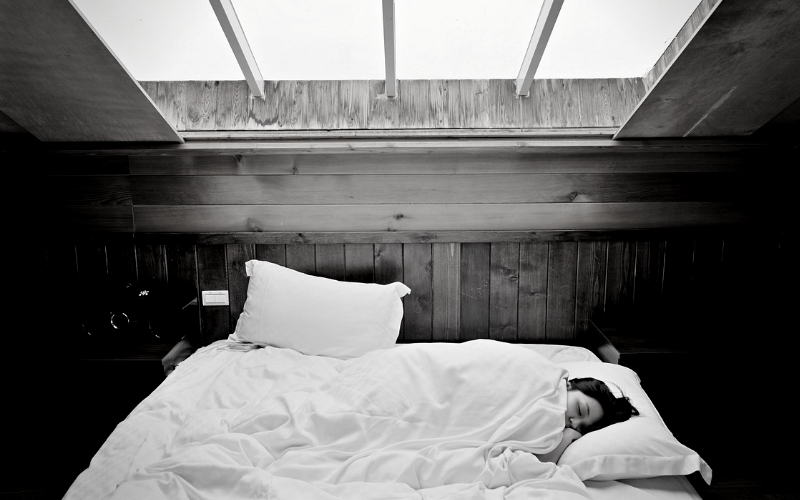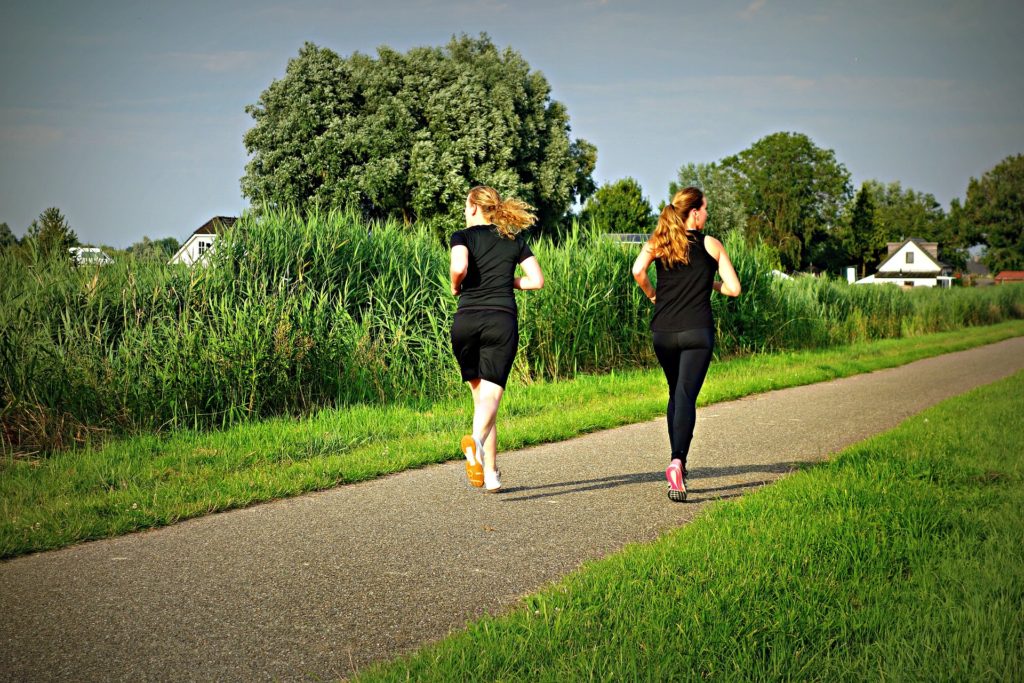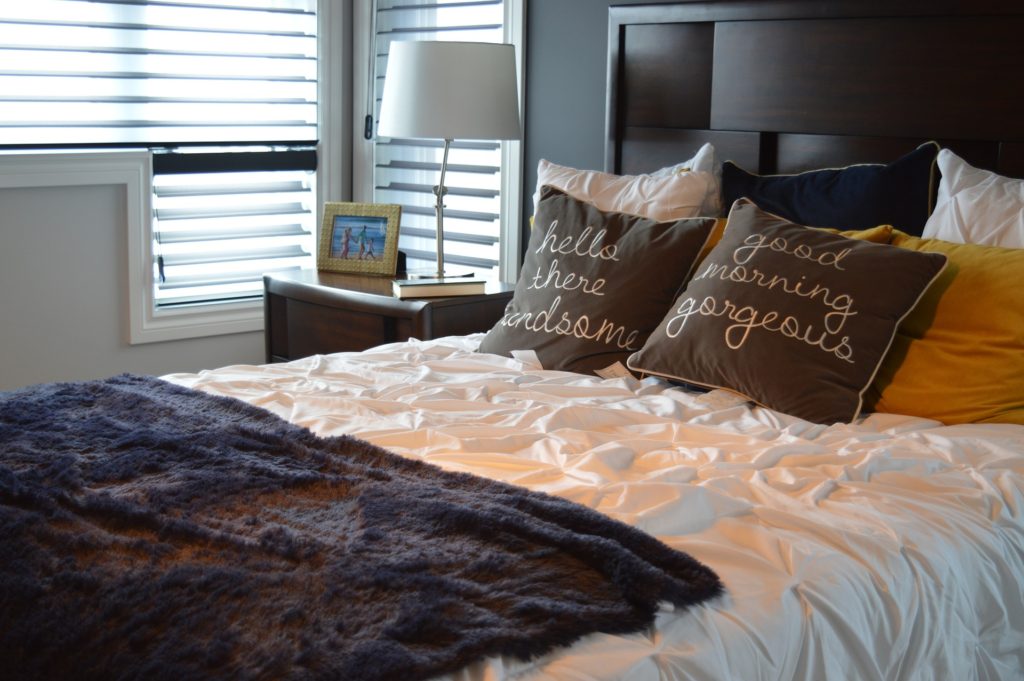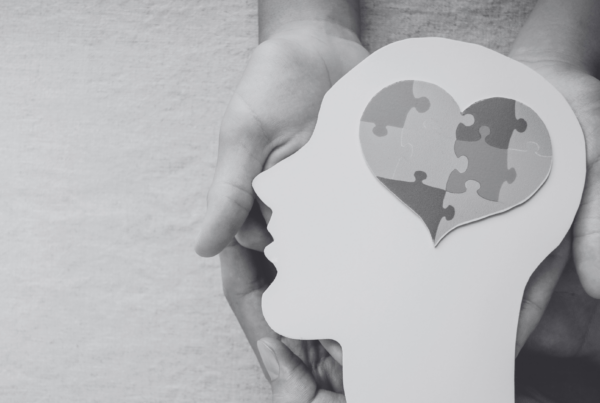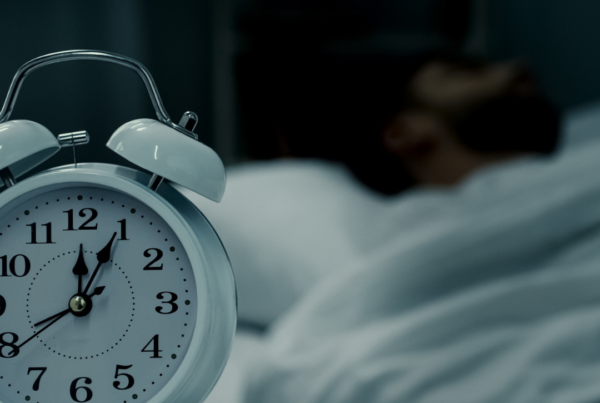Getting a good night’s sleep is essential for our health. Sleep allows us to maintain a healthy weight, balances out our hormones and helps our brain work to the best of its ability. To look after your health and wellbeing, you should be getting roughly 8 hours of undisturbed sleep each night.
If you struggle to sleep at night, you’re not alone. Many people find it difficult to get a good night’s sleep. This causes mood swings, stress and can even lead to depression. Struggling to get a good night’s sleep can also affect your work-life by reducing productivity, creativity and motivation. It can also impact your relationship’s with others, including your loved ones and colleagues.
Thankfully, there are many practical, and easy ways to improve your sleeping routine and get a good night’s sleep. Here are our top tips.
1. Exercise Daily To Get A Good Night’s Sleep
It’s no secret that exercise is good for your health and wellbeing. We talk about it all the time! But did you know that exercise can also help you get a good night’s sleep?
Daily exercise will tire your body out gently and will help you fall into a deeper sleep quickly. Aim to get at least 30 minutes of exercise every day. However, don’t exercise too close to bedtime as this will increase your body’s adrenalin and keep you alert.
2. No Caffeine After 2pm
For those of you who rely on coffee to get through the day, this one might be a struggle! But if you think about it, it makes perfect sense. It has been proven that caffeine disrupts your sleep, even hours after you have consumed it.
So, if you want to fall asleep quicker and enjoy a full night of blissful, uninterrupted sleep, don’t drink any caffeinated drinks after 2pm. This includes coffee, tea and energy drinks etc.
3. Limit Your Naps
Having a nap on the sofa when you get home from work may seem like a solution to you being overly tired all the time. But instead, it’s damaging your sleeping pattern. Napping interrupts your natural sleep cycle and makes it harder to fall asleep at night or get a good night’s sleep.
If you really have to nap, limit it to 30 minutes and avoid napping during the evenings.
4. Don’t Use Electronics Before Bed
This one might be tricky. If you’re used to watching TV before you go to bed or spending half an hour scrolling through Instagram before you go to sleep, you’re not alone. We all do it. But it’s not good for us.
Use technological devices such as mobile phones, tablets and TV’s stimulate the brain and suppresses the sleep hormone melatonin. If you want to get a better night’s sleep, ditch the phone and enjoy some light reading instead.
5. Enjoy A Relaxing Bath
Studies show that having a hot bath an hour or so before you go to bed can help you fall into a deeper sleep. Being in the bath also allows you to have a break from technology and enjoy some time alone. If you don’t like taking baths and would much prefer a shower, our advice would be; don’t knock it until you’ve tried it.
Have a bath every night before bed for one whole week. If it improves your sleep, great! If not, at least you tried it.
6. Create The Best Sleeping Environment
There are many factors that can affect your sleep during the night, these include room temperature, external light and noise. To get a better night’s sleep, ensure your bedroom is set at a comfortable temperature. Make sure there is no light coming through the window (you may want to invest in blackout curtains or blinds). Also, ensure the room is quiet, with no ticking clocks or mobile phone notifications to disturb you.
If you cannot control some of these factors, for example, if you share a house with noisy flatmates, you may benefit from earplugs and an eye mask.
7. Listen To Your Body To Get A Good Night’s Sleep
Your body has a natural sleep-wake schedule. By following your body’s natural cycle, you can improve your sleeping pattern as well as your health and wellbeing. To do this, aim to go to bed at the same time every night and try to wake up at the same time every morning, even on the weekends!
Having long lie-ins on Sundays or staying up super later at the weekend will disrupt your body’s natural sleep-wake schedule. You can also improve your body’s natural sleep-wake cycle by exposing yourself to natural light during the day. This will increase your energy during the day and improve the quality of your sleep during the night.
8. Consider Getting A New Mattress Or Pillow
Your bed can have a huge impact on your sleep, health and wellbeing. If you have a poor-quality mattress or a mattress that isn’t quite right for your body weight, it can prevent you from getting a good night’s sleep.
If you’re struggling to get comfortable, waking up a lot in the night or suffering from back pain and/or stiffness, it could be time to get a new mattress. When purchasing a new mattress, it is better to go to a store where you can try them out rather than buying online. This gives you the opportunity to try various mattress styles and figure out which one is best for your body.
9. Track Your Sleep
If you are making improvements to your lifestyle with the hope of getting a good night’s sleep, you should start tracking your sleep.
You can keep track of your sleep on the Wellspace wellbeing application. This will help you see what is working and what isn’t, so you can tailor your very own sleep programme.
Get In Touch
If you want to find out more about ways you can get a better night’s sleep and look after your health and wellbeing, then simply get in touch with Wellspace today.

